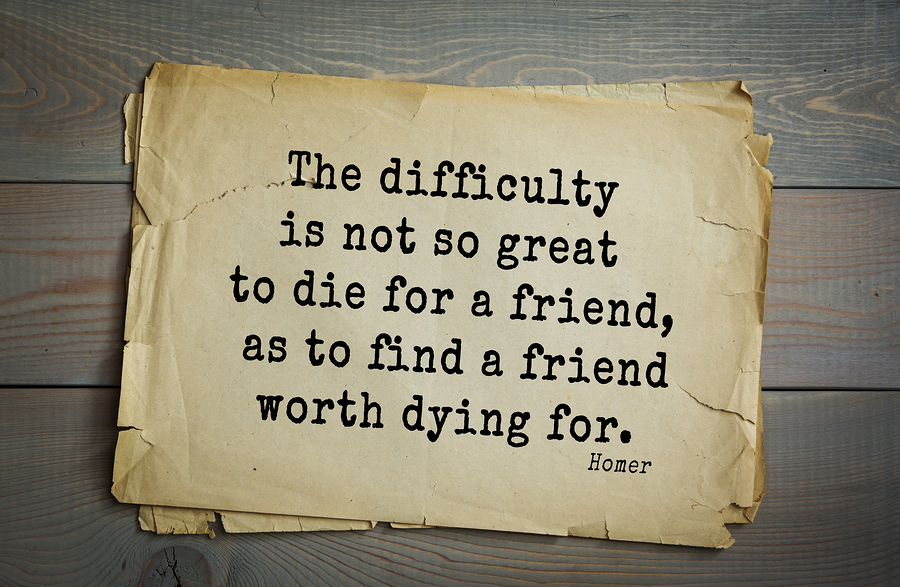
Your life is worth dying for…
Exactly what are we worth? We usually think about our worth in dollars and cents. In terms of salaries, bonuses and raises.
Each of us asks the question at least once, probably several times during the different phases of our lives:
- From the beginning of our careers and the process of evaluating job offers.
- Then when negotiating for raises with our superiors.
- Once we attain notoriety, we lay claim to increased value, usually others agree.
- But later in life, we think about our worth differently.
- Maybe worry about our diminished value to the world once we are no longer in the work force.
- Once our incomes are fixed and the bills begin to build.
- And get concerned about outliving our money.
- So consider the question in a different context, a supernatural one: Is our life worth dying for?
Have you ever looked at the tortured figure on the cross…at his face…looked into his eyes and seen in that beloved, tortured face: Your life is worth dying for?
Because that is what we celebrate on this Resurrection Easter day, the memorial of His death, after the anguish of Good Friday and silence of Holy Saturday.
Finally, He lives.
Appearing first to the one who loved him best, after of all the disciples, Mary Magdalene.
I’ll say it again…Because it seems that human life is viewed as more and more worthless: Ten states now view euthanasia as legal and for the first time, suicide has made the list of the reasons we die. And abortion is viewed as a right, a sign of freedom, even babies born alive.
Your life is worth dying for
It has been a few years since I heard a priest make that bald, arresting , even shocking statement. But during these holiest of days. Days when grace is being poured out from the heavens, I think of it once again. And about his comment about the longest journey any of us ever takes:
“The longest distance in the world is not from the northern most tip of Alaska to the southern most tip of South America. The longest distance in the world is from the mind of a man to his heart.”
We shy away from looking at that tortured face, the massive thorns digging into his scalp, into his brain. Close our eyes to the agony and what looks to our superhero saturated culture like weakness. Many of us Christians prefer the cross without that tortured, disfigured body hanging on it.
Missing the point, entirely.
For an authentic description of The Christ, we can look back several centuries. The Dream of the Rood was written sometime during the eighth or ninth centuries. Barbaric days, many moderns claim. Perhaps.
Written in the perspective of the cross, these searing words describe our King and Warrior…”the young hero stripped himself, he God almighty, strong and stout minded….”
“It was long since – I yet remember it –
that I was hewn at holt’s end,
moved from my stem. Strong fiends seized me there,
worked me for spectacle; cursèd ones lifted me [.
On shoulders men bore me there, then fixed me on hill;
fiends enough fastened me. Then saw I mankind’s Lord
come with great courage when he would mount on me.
Then dared I not against the Lord’s word
bend or break, when I saw earth’s
fields shake. All fiends
I could have felled, but I stood fast.
The young hero stripped himself – he, God Almighty –
strong and stout-minded. He mounted high gallows,
bold before many, when he would loose mankind.
I shook when that Man clasped me. I dared, still, not bow to earth,
fall to earth’s fields, but had to stand fast.
Rood was I reared. I lifted a mighty King,
Lord of the heavens, dared not to bend.
With dark nails they drove me through: on me those sores are seen,
open malice-wounds. I dared not scathe anyone.
They mocked us both, we two together . All wet with blood I was,
poured out from that Man’s side, after ghost he gave up.
Much have I born on that hill
of fierce fate. I saw the God of hosts
harshly stretched out. Darknesses had
wound round with clouds the corpse of the Wielder,
bright radiance; a shadow went forth,
dark under heaven. All creation wept,
King’s fall lamented. Christ was on rood.
But there eager ones came from afar
to that noble one. I beheld all that.
Sore was I with sorrows distressed, yet I bent to men’s hands,
with great zeal willing. They took there Almighty God,
lifted him from that grim torment. Those warriors abandoned me
standing all blood-drenched, all wounded with arrows.
They laid there the limb-weary one, stood at his body’s head;
beheld they there heaven’s Lord, and he himself rested there,
worn from that great strife.
For the entire poem, The Dream of the Rood, click here.
May the Grace and blessings of this holiest of seasons permeate each one of us with love. And a new confidence that your life is worth dying for.



